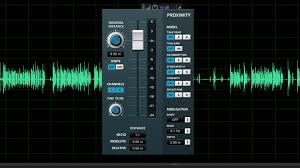Navigating the Complexity: Understanding Plugin Compatibility Issues in Adobe Audition
Emily March 29, 2024
Plugin compatibility issues can be a significant hurdle for users of Adobe Audition, disrupting workflow and hindering the creative process. Whether you rely on third-party plugins for audio processing, effects, or virtual instruments, encountering compatibility issues can be frustrating and time-consuming. In this comprehensive guide, we’ll explore the common causes of plugin compatibility issues in Adobe Audition, provide troubleshooting strategies, and offer tips for ensuring smooth integration of plugins into your audio production workflow.
Understanding Plugin Compatibility Issues:
Plugins are essential tools for extending the functionality of Adobe Audition, allowing users to access a wide range of effects, processing algorithms, and virtual instruments to enhance their audio projects. However, compatibility issues may arise when plugins are not fully compatible with the software, resulting in errors, crashes, or unexpected behavior. These issues can stem from various factors, including software updates, changes to system configurations, or conflicts between plugins and the host application.
Common Causes of Plugin Compatibility Issues:
- Software Updates: Updates or patches released for Adobe Audition or the operating system may introduce changes that affect plugin compatibility. Changes to the plugin architecture, file paths, or dependencies may render certain plugins incompatible with the updated software environment.
- Plugin Updates: Updates released for individual plugins may inadvertently introduce compatibility issues with Adobe Audition. Changes to the plugin code, dependencies, or system requirements may cause conflicts or errors when the plugin is used within the host application.
- Operating System Changes: Changes to the underlying operating system, such as updates, patches, or changes to system settings, may affect plugin compatibility with Adobe Audition. Differences in file paths, security settings, or system libraries may impact the ability of plugins to function correctly.
- Hardware Configurations: Incompatibility between plugins and certain hardware components, such as audio interfaces, sound cards, or drivers, may lead to compatibility issues in Adobe Audition. Hardware malfunctions, outdated drivers, or conflicts between hardware and software can exacerbate these issues.
- Plugin Dependencies: Plugins often rely on external dependencies, such as system libraries, frameworks, or runtime environments, to function correctly. Changes to these dependencies, such as updates or removal of required components, may cause plugins to malfunction or become incompatible with Adobe Audition.
Troubleshooting Strategies:
- Update Adobe Audition: Ensure that you are using the latest version of Adobe Audition, as updates often include bug fixes and improvements that address plugin compatibility issues.
- Update Plugins: Keep your plugins up to date by installing the latest updates and patches released by the plugin developers. Updates may include fixes for compatibility issues with Adobe Audition and other host applications.
- Check System Requirements: Verify that your computer meets the minimum system requirements for running Adobe Audition and the plugins you are using. Incompatible hardware or outdated software may contribute to compatibility issues.
- Test Plugins Individually: Test each plugin individually to identify which ones are causing compatibility issues with Adobe Audition. Disable or remove problematic plugins and gradually reintroduce them to isolate the culprit.
- Contact Plugin Developers: Reach out to the developers of incompatible plugins to report the issue and request assistance. Developers may release updates or provide troubleshooting tips to resolve compatibility issues.
- Use Compatibility Modes: If experiencing compatibility issues with certain plugins, try running Adobe Audition in compatibility mode or as an administrator. This may help mitigate compatibility issues caused by changes to the operating system or system settings.
Preventing Future Issues:
- Research Plugins: Before installing new plugins, research their compatibility with Adobe Audition and other host applications. Check user reviews, forums, and developer websites for information on compatibility issues and user experiences.
- Backup Projects: Regularly backup your Adobe Audition projects to prevent data loss in the event of plugin-related crashes or compatibility issues.
- Stay Informed: Stay informed about updates, patches, and compatibility issues related to Adobe Audition and the plugins you use. Subscribe to developer newsletters, forums, or social media channels to receive timely updates and announcements.
- Test Before Production: Before using new plugins in production projects, thoroughly test them in a controlled environment to ensure compatibility and stability. Identify and resolve any compatibility issues before incorporating plugins into your workflow.
By understanding the common causes of plugin compatibility issues in Adobe Audition and implementing the suggested troubleshooting strategies and preventive measures, users can mitigate the risk of interruptions and maintain a stable and productive audio production environment.







